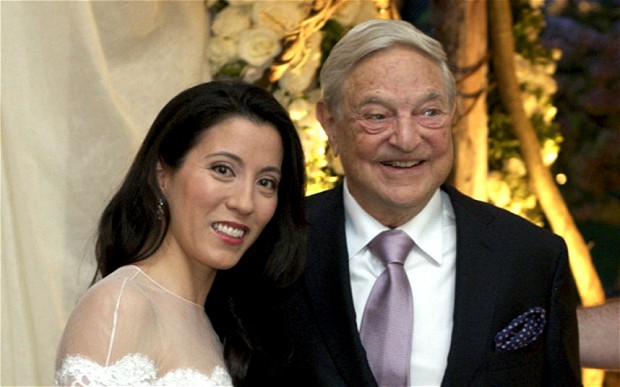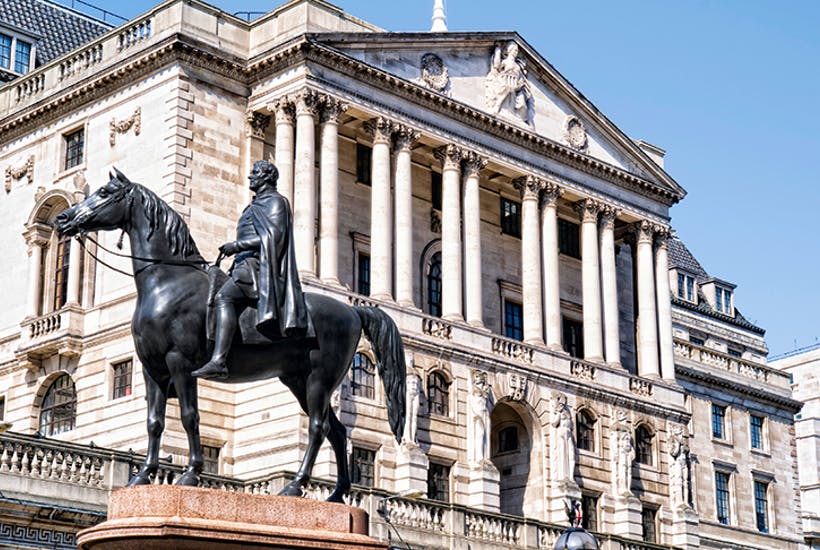Who Is George Soros?

A few minutes every morning is all you need.
Stay up to date on the world's Headlines and Human Stories. It's fun, it's factual, it's fluff-free.
As one of the planet’s richest men, hedge fund manager George Soros has used his vast fortunes to shape economic and political policies around the world.
As a result, Soros has gained many supporters who celebrate his vast philanthropic efforts in dozens of nations.
The liberal Jewish billionaire, who grew up in Nazi-occupied Hungary, has also however, earned a reputation for being a heartless investor whose savvy financial dealings have come at the cost of others. He’s also become a central figure in antisemitic conspiracy theories and a figure of disdain among political conservatives.
The life and fortune of George Soros
Soros was born in 1930 in Hungary. His father, Tivador Soros, was a successful lawyer and author. In the latter years of World War II, Germany’s Nazi army invaded and occupied Hungary.
The Soros family, which included George’s mother Elizabeth and brother Paul, was Jewish. To avoid capture, Tivador used his wealth to purchase fake identity papers. The Soros family also helped other Jews hide their identities.
Soros survived the Nazi occupation by posing as the Christian godson of a Hungarian official, then left Hungary at the age of 17 to study at England’s London School of Economics. Soros received both a BA and PhD in philosophy from the school before emigrating to the United States in 1956. In the US, he entered the financial field.
Soros started a hedge fund, Soros Fund Management, in 1970. Through lucrative investments and some controversial maneuvers over the following decades, Soros amassed a fortune, becoming one of the richest men in the world.
Forbes currently lists Soros as the 56th richest person in the world with a net worth of US$8.3 billion.
Soros married his third wife, Tamiko Bolton, in 2013. He has five children, three with his first wife, Annaliese Witschak, and two with his second wife, Susan Weber.

Soros’ philanthropic work
Though Soros has not signed the Giving Pledge – a pledge by many of the world’s richest citizens, including Bill and Melinda Gates and Warren Buffett, to dedicate more than half of their fortunes to tackling global problems – he has been engaged in philanthropy since 1979.
In 1984, Soros founded his first international foundation in Hungary, which would become one of the Open Society Foundations. That network of foundations, which now oversees projects in over 100 countries, provide grants to groups that support human rights, as well as LGTBQ and social justice causes, among others.
The Open Society Foundations’ stated goal is working “to build vibrant and inclusive democracies whose governments are accountable to their citizens.”
Soros’ first philanthropic gift was providing scholarships to black university students during apartheid in South Africa. Most recently, through the Open Society Foundations, Soros announced a gift of €1 million to assist with Budapest’s fight against the COVID-19 epidemic.
Having personally donated US$32 billion towards philanthropic causes, he has been listed behind Buffett and the Gates as one of the top givers in the US.
Breaking the Bank of England

A controversial investment move in 1992 earned Soros the nickname, “The Man Who Broke the Bank of England.” At a time of instability for the British pound, Soros recognized a means of profiting quickly by “shorting” the currency.
The main event happened on September 16, 1992 (known as “Black Wednesday”), but the build up to it had been years in the making.
After years of resistance, Britain joined the European Exchange Rate Mechanism (ERM) in 1990. The ERM was intended to bring stability to the various currencies used within Europe, as well as pave the path for the adoption of the euro as an international currency.
Investors like Soros recognized that a mix of a high inflation rate and an unstable economic outlook made the pound weaker than it appeared. By buying foreign currency using US$10 billion in pounds, Soros exposed the weakness of the British currency. When the pound’s value crashed, Soros was able to profit for a total of US$1 billion.
The savvy decision to “bet against” the pound has earned Soros praise, but also condemnation as the currency’s crash led to a recession in the United Kingdom.
(A similar type of “short selling” took place during the 2008 housing crash, as depicted in the 2010 book, “The Big Short,” and the 2015 Oscar-nominated film of the same name).
Antisemitic attacks on George Soros
Soros has regularly been the subject of criticism by conservative voices, some of which has been antisemitic.
Many unsubstantiated claims about Soros allege that he funds groups and movements designed to harm or control America. He is often referred to as a “globalist,” a term with a long history as a slur against Jews.
In 2018, Soros was one of many prominent liberal figures in the United States who received mail bombs. Much of the hatred aimed at Soros in the last few years has been fueled by a belief by some fringe conservative groups (including QAnon) that the billionaire is funding opposition to President Donald Trump and his agenda.
In his own tweets, Trump himself has pushed the unproven conspiracy theory that Soros pays actors to protest him and his policies
Soros has also been a vocal critic of Trump.
While speaking to world and economic leaders at the annual World Economic Forum in Davos, Switzerland, in January 2020, Soros called the president “a conman and a narcissist who wants the world to revolve around him.”
In the same speech, Soros also criticized Chinese President Xi Jinping, who he has alleged is trying to use artificial intelligence to control people.
Accusations of Nazi collaboration
In 2010, a right-wing writer, Ezra Levant, published an opinion piece in the conservative Canadian tabloid, Toronto Sun, which accused Soros of having collaborated with the Nazis during World War II. The article alleged that Soros helped send Jews to death camps and steal their possessions.
Those accusations were based on a 60 Minutes interview with Steve Kroft in 1998. In the interview, Soros acknowledged that his protector, a man who claimed to be his adopted father, was responsible for confiscating Jewish possessions.
Soros said that, as a 14-year-old child, he was “only a spectator” to those actions. He also said that he did not feel guilty because the events would have happened whether he was there or not. Soros called it “a very personal experience of evil.” At no point in the interview did he indicate that he collaborated with the Nazis.
After Levant’s piece was published, Soros threatened to sue the Sun for defamation. The paper took down the piece (though numerous blogs have reprinted it) and printed an apology in which the publishers stated, “The management of Sun Media wishes to state that there is no basis for the statements in [Levant’s] column and they should not have been made.”
Despite the retraction and lack of evidence, prominent right-wing critics have continued to push the narrative that Soros was a Nazi collaborator. Those critics include the son of President Trump, Donald Trump Jr.
[article_ad]
Have a tip or story? Get in touch with our reporters here!




Comments ()